The Management Organisation responsible for tuna stocks in the Indian Ocean say they want to make advancements for sustainable tuna, but during last week’s meeting they continued to ignore its most urgent threat; overfished Indian Ocean yellowfin. Global retailers including Tesco, Aldi, Princes and Woolworths are left disappointed as they are, once again, left to answer to their consumers who demand sustainably sourced seafood.
The Indian Ocean Tuna Commission (IOTC) meeting (16th – 20th May) was an opportunity to advance tuna fisheries and set new catch limits in line with scientific advice. However, to achieve this, all countries need to play their part for the greater good of long-term stock health. We, the Global Tuna Alliance – a group of highly influential supply chain companies and retailers who collectively bought 1.27 million tonnes of tuna in 2020, which is worth over $1.3billion USD – published our asks of the IOTC meeting in advance. Chief on our agenda was the issue of Indian Ocean yellowfin tuna, the overfished stock for which the IOTC failed to meet a consensus in 2021’s meeting, because six member states objected to an otherwise effective proposal. India, Oman, Somalia, Madagascar, Iran and Indonesia all objected, with most indicating concerns for socio-economic impacts on fisheries, which – ironically – will be the communities most affected when yellowfin tuna stocks dwindle.
The impact of these six countries’ rejection of the agreement totally derails the collective effort made by the other 24 countries who adopted the new measure. The agreed catch limit was 403,000 tonnes, yet if these six member states who are not bound by the new measure continue to catch yellowfin at the rate they did in 2020, it could raise the overall catch to around 445,613 tonnes. When you consider that 2021’s scientific assessment revealed that Maximum Sustainable Yield (MSY) was recalculated to 349,000 tonnes, it highlights a difference of over 100,00 tonnes. That’s 28% over the recommended maximum catch.
2021’s scientific advice also revealed that if the 2020 catch levels are reduced by 30% there is a more than 67% probability of rebuilding the stock by 2030. This is what we – the voice of the market – were calling for ahead of last week’s meeting.
Peter Adame, Director of Communications and Sustainability at Lusamerica Foods, made a plea to delegations, saying: “Yellowfin populations continue to be a concern in the Indian Ocean. I urge our delegates to agree on reducing catch by 30% and adopting a science-based management plan. A proper management plan has been put off and delayed for too long. Let’s do our part to ensure tuna from the Indian Ocean is around for generations to come. It’s critical for biodiversity in our oceans, jobs for neighbours, and food security in our homes.”
Despite scientists, consumers, NGOs and retailers all calling for a catch reduction on yellowfin, a recurring theme in last week’s IOTC meeting was certain member states objecting to proposals without offering alternatives or a rationale. Those who did explain their reasons frequently cited that they were supportive of conservation measures – proving that they understand the importance of reducing catch – though they weren’t prepared to cut their own share. Of course, many member states did agree to take considerable cuts, and were frustrated with the lack of compromise from others.
In 2022, consumers choose to source their seafood from sustainable sources, and the market was looking for progress to be made. With an estimated 20% share of the global sales of tuna, our partners have undeniable purchasing power as well as multiple sourcing options. They are looking for well-managed fisheries as requirements of their own sourcing policies. In the current situation, IOTC risks becoming an unattractive proposition for market actors who wish to source tuna responsibly.
Ruth Hoban, Head of Sustainability at New England Seafood (NESI), said: “As we have done for the past 20 years, NESI wants to continue to be buying yellowfin from the Indian ocean for the next 20 years. But to continue doing this, there needs to be considerable improvements on an effective yellowfin rebuilding plan.”
Despite disappointing inaction for yellowfin, there were some successes as IOTC delegates made progress on other issues surrounding sustainable tuna, including management procedures for bigeye tuna, transshipment resolution improvements, electronic monitoring standards, and a new climate change measure.
Supporting and advancing these tertiary issues is certainly a positive step towards sustainable tuna, but without taking the mammoth leap needed in regards to yellowfin, the goal will always remain out of reach. Further delay for catch reductions now means the stock is likely to decrease further, which means larger cuts will be needed to rebuild when member states decide they are ready to take action.
Notes
Indian Ocean Tuna Commission (IOTC) is an intergovernmental organisation responsible for the management of tuna and tuna-like species in the Indian Ocean. It is one of the five tuna Regional Fisheries Management Organisation (RFMOs). The GTA has published a more detailed account of the outcomes from the IOTC meeting here
The Global Tuna Alliance (GTA) is an independent group of retailers and tuna supply chain companies who are committed to achieving more transparent, socially responsible, and environmentally sustainable tuna fisheries. Operating over 10,000 stores in 21 countries across four continents, they use their collective purchasing power to influence the policies set out by the tuna Regional Fisheries Management Organizations (tRFMOs).
Lusamerica Foods is a GTA Partner and American seafood supplier which distributes around 18 million kilograms of fresh and frozen food annually.
New England Seafood (NESI) is a GTA Partner and major supplier of fresh and frozen premium sustainable fish and seafood in the UK and one of the largest importers of fresh tuna. Its customers are some of the UK’s leading supermarkets including Marks & Spencer, Sainsbury’s and Waitrose; as well as smaller retail outlets; restaurant chains; food service markets and wholesale sectors nationwide.
